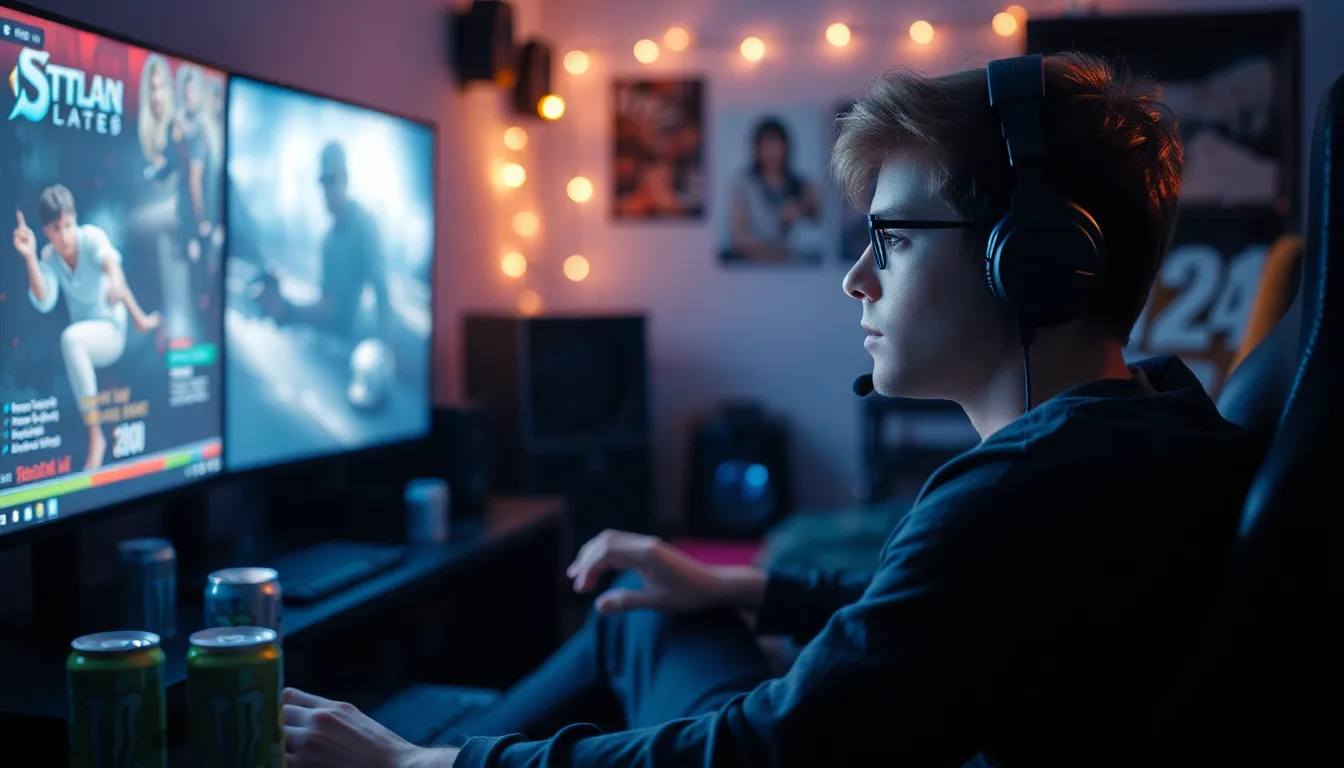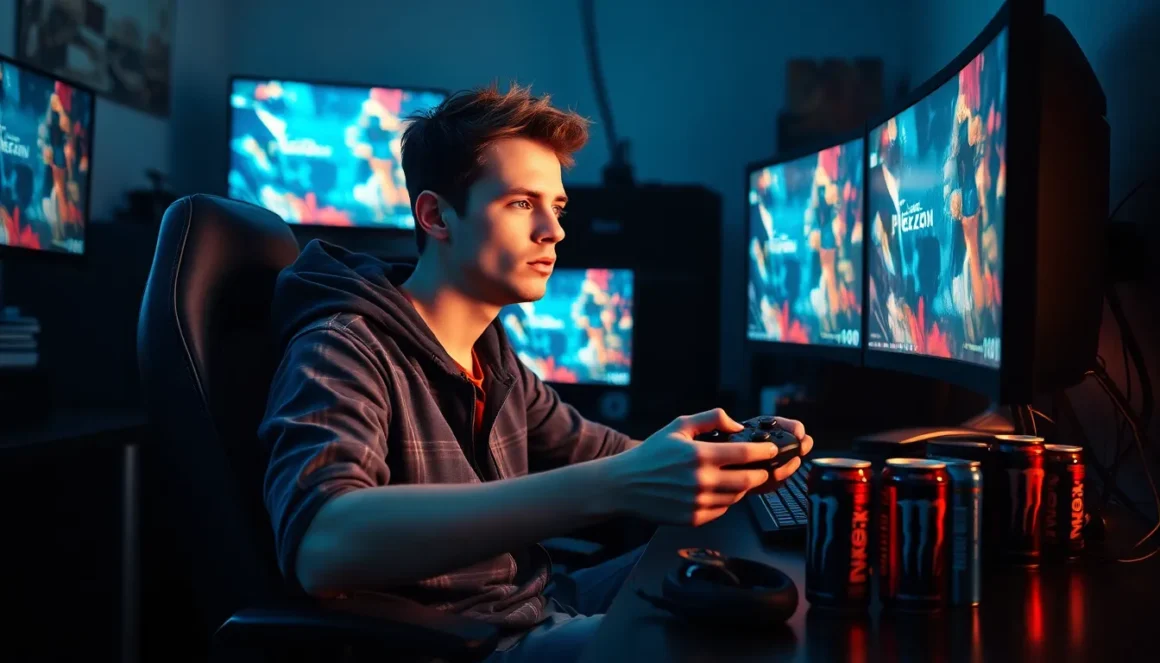In today’s digital age, gaming has become a popular pastime for millions. While it offers entertainment and a way to connect with others, excessive gaming can lead to unexpected consequences. One of the emerging concerns is the link between heavy gaming and anxiety, particularly in those who may already be predisposed to mental health challenges. As players immerse themselves in virtual worlds, the line between reality and gaming can blur, potentially intensifying feelings of stress and anxiety. Understanding this relationship is crucial for gamers and their families, as it sheds light on the importance of moderation and mental well-being. Exploring whether too much gaming can trigger anxiety is essential for fostering a healthier gaming culture.
Can Too Much Gaming Overdertoza Cause Anxiety
Understanding overdertoza involves recognizing its symptoms and impacts, particularly in the context of gaming. This condition manifests when an individual becomes overly engrossed in gaming, leading to significant disruptions in daily life.Definition of Overdertoza
Overdertoza refers to an excessive attachment to gaming, characterized by compulsive gameplay that interferes with personal responsibilities, social interactions, and mental well-being. Symptoms include irritability, sleep disturbances, and withdrawal from real-world activities. This condition often leads to increased anxiety levels, especially when individuals struggle to balance gaming with real-life commitments.The Role of Gaming in Overdertoza
Gaming plays a significant role in the development of overdertoza. Engaging deeply in virtual environments can provide an escape from reality, which may initially seem beneficial. However, prolonged immersion often results in neglect of essential daily tasks and personal relationships. The excitement and rewards from gaming can create a cycle of dependency, exacerbating feelings of anxiety and stress, particularly for those already vulnerable to mental health challenges.The Connection Between Gaming and Anxiety

Psychological Effects of Excessive Gaming
Excessive gaming leads to various psychological effects. Prolonged exposure to virtual environments enhances emotional response to in-game situations, creating real-life stress. Studies show that gamers often exhibit feelings of increased frustration and anger during gameplay, which can translate into anxiety outside of gaming. Furthermore, those who excessively engage with games might demonstrate reduced coping strategies, leading to difficulties in managing stressors encountered in everyday life.Symptoms of Anxiety Linked to Gaming
Symptoms of anxiety related to gaming manifest in different forms. Common indicators include:-
- Irritability: Increased irritability often emerges when gaming time is restricted or interrupted, reflecting an unhealthy attachment to the gaming experience.
-
- Sleep Disturbances: Difficulty falling asleep or maintaining sleep arises from late-night gaming sessions, adversely affecting mental well-being.
-
- Withdrawal: Individuals may withdraw from social interactions and activities outside gaming, leading to a sense of isolation that compounds anxiety.
Factors Contributing to Gaming-Induced Anxiety
Various elements contribute to gaming-induced anxiety, affecting players differently. Understanding these factors can help in recognizing triggers and promoting healthier gaming practices.Gaming Environment and Community
Gaming environments, including in-game dynamics and online communities, impact mental health. Highly competitive games can provoke intense pressure, leading to anxiety. Toxic behavior, such as harassment or negative feedback from other players, often intensifies stress levels. Social interactions in gaming, while providing a sense of belonging, can also result in feelings of inadequacy or anxiety, especially in multiplayer settings. Frequent exposure to negative interactions fosters a hostile atmosphere, potentially pushing players to withdraw from gaming or real-life social engagement, increasing feelings of isolation.Individual Vulnerabilities
Individual vulnerabilities play a significant role in how gaming affects mental health. People with pre-existing anxiety disorders or mental health issues are more susceptible to gaming-induced stress. Frequent gamers may also exhibit personality traits like high sensitivity to criticism, leading to heightened reactions during gameplay. Moreover, lifestyle factors such as lack of physical activity, poor sleep quality, and unhealthy eating habits exacerbate anxiety symptoms. The interplay between these vulnerabilities and gaming habits can create an environment where anxiety thrives, particularly when gamers neglect self-care or personal responsibilities.Managing Gaming and Anxiety
Managing gaming habits plays a crucial role in mitigating anxiety. Establishing boundaries and maintaining a balanced lifestyle promotes mental well-being.Strategies for Healthy Gaming Habits
-
- Set Time Limits: Gamers should designate specific time frames for gaming sessions. This helps prevent excessive immersion and encourages engagement in other activities.
-
- Incorporate Breaks: Regular breaks during gaming can alleviate stress and reduce fatigue. Taking a break every hour allows players to recharge mentally and physically.
-
- Prioritize Responsibilities: Gamers must prioritize daily responsibilities over gaming. Completing tasks, such as schoolwork or chores, before gaming diminishes the likelihood of anxiety from neglected obligations.
-
- Engage in Physical Activity: Regular exercise can counteract the sedentary nature of gaming. Engaging in physical activity, even simple stretching, enhances mood and reduces stress levels.
-
- Limit Late-Night Gaming: Sleep quality directly affects mental health. Limiting gaming sessions late at night promotes better sleep hygiene and decreases anxiety.
-
- Diversify Hobbies: Exploring a variety of hobbies outside of gaming prevents overdertoza. Engaging in interests like reading, sports, or arts provides a balanced approach to leisure.
Seeking Professional Help
Seeking professional assistance becomes essential when gaming significantly impacts mental health. Trained professionals can evaluate symptoms and offer tailored interventions, such as:-
- Cognitive Behavioral Therapy (CBT): CBT can help individuals identify harmful thought patterns linked to gaming. This therapy promotes healthier behaviors and stress management techniques.
-
- Support Groups: Joining peer support groups allows individuals to share experiences and coping strategies. Engaging with others facing similar challenges fosters a sense of community and reduces feelings of isolation.
-
- Consulting Psychiatrists: Professional evaluations can determine if anxiety requires medication. Psychiatrists can prescribe appropriate treatments when necessary, supporting the individual’s mental health journey.


